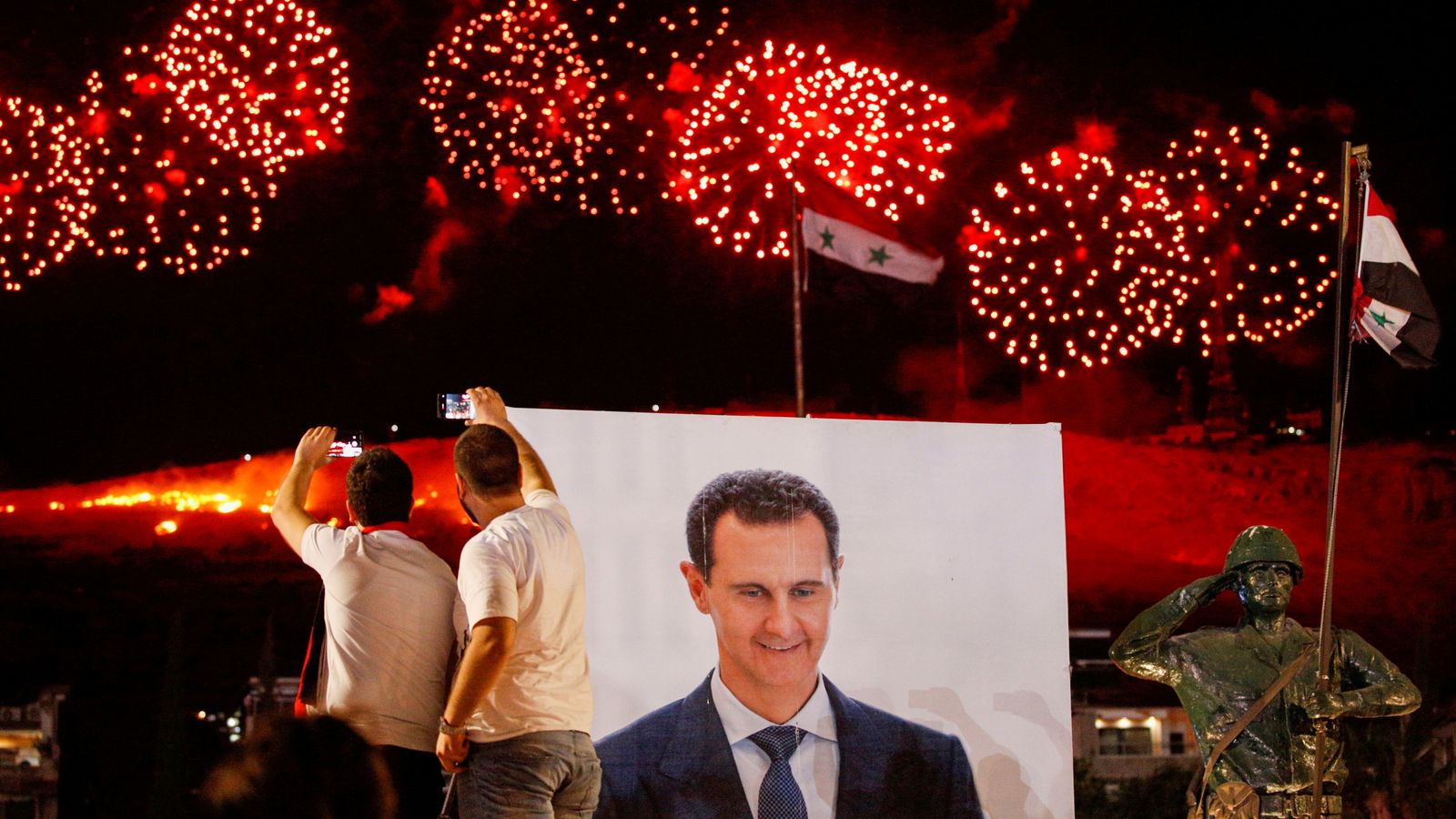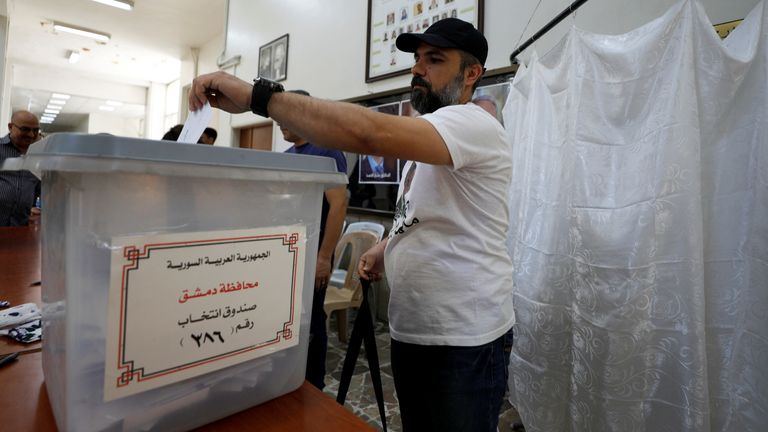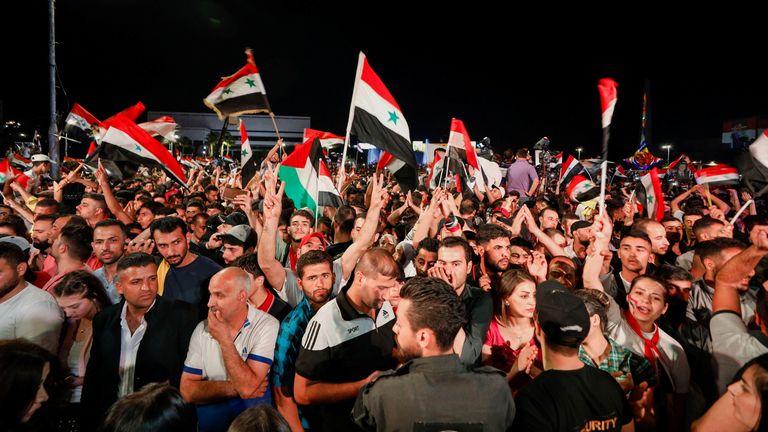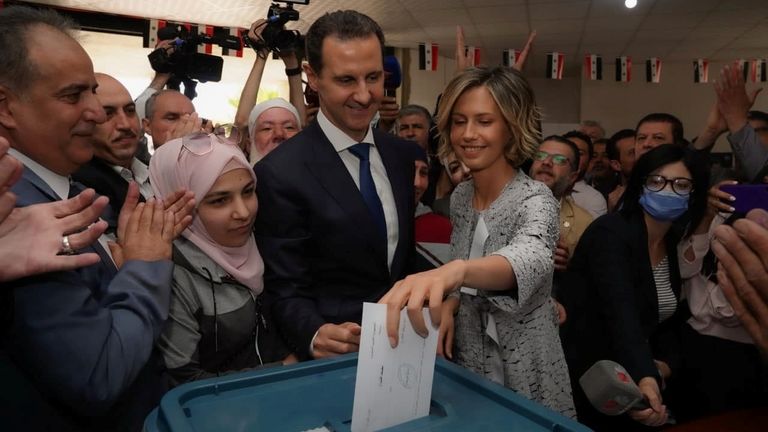Syria’s President Bashar al Assad has been re-elected with 95.1% of the vote, according to officials in the country, as the West denounced the vote as illegitimate.
Officials said 78.6% of eligible voters cast their ballot – but in a country where many are displaced after a 10-year conflict, this figure has been questioned.
Areas controlled by rebels or Kurdish-led troops did not hold the vote, and over five million refugees who are mainly living in neighbouring countries largely chose not to cast their ballots.
The president wrote on his campaign’s Facebook page: “Thank you to all Syrians for their high sense of nationalism and their notable participation… For the future of Syria’s children and its youth, let’s start from tomorrow our campaign of work to build hope and build Syria.”
Mr Assad had faced symbolic competition from two candidates, former deputy cabinet minister Abdallah Saloum Abdallah and Mahmoud Ahmed Marei, the head of a small, officially sanctioned opposition party.
The win will give the 55-year-old seven more years in power, stretching his family’s rule to almost six decades.
His father, Hafez al Assad, was the country’s leader until his death in 2000.
Thousands gathered to celebrate in Syria‘s capital Damascus on Thursday night, with many dancing while waving flags and pictures of Mr Assad and chanting “with our soul, blood, we defend you Bashar”.
Gunfire and fireworks lit the night sky and a large stage was set in the city’s Omayyad Square.
Despite the celebrations, the country continues to suffer the effects of a devastating coronavirus wave and a decade of conflict.
Over 80% of the country lives below the poverty line and the economy is currently in freefall.
A UN-led peace process had called for the voting to be held under international supervision in the hopes it would pave the way for a new constitution and a political settlement.
But European and US officials said the election lacked any international monitoring and had violated the UN resolutions.
The result is likely to deepen the Syrian government’s rift with the West, driving it closer to Russia, Iran and China.



